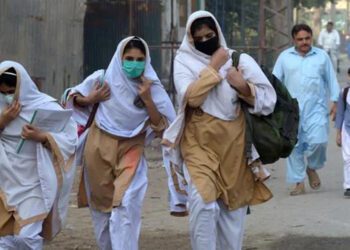DUBAI: Minister for Information and Broadcasting Fawad Chaudhry has said that direct engagement with the Taliban is the only way to prevent a human catastrophe and for billions of dollars of Afghan assets frozen overseas to be released.
In an interview, the federal minister said engagement would also encourage the protection of human rights and the establishment of broad-based and constitutional government. “Are we going to push Afghanistan into chaos or are we going to try and stabilise the country?” he asked.
Fawad Chaudhry said it is time the United States, China and other major powers set out a framework for formal recognition of Afghanistan’s new rulers and for the removal of United Nations sanctions on Taliban including some members of the new government.
He said engagement would also encourage the protection of human rights and the establishment of an inclusive, constitutional government. This, together with direct economic assistance, was the only way to avert instability, he said adding, “The watch on this bomb is already clicking.”
Wheat-for-work scheme
Afghanistan’s Taliban government launched a programme to tackle hunger on Sunday, offering thousands of people wheat in exchange for labour. The scheme will be rolled out around Afghanistan’s major towns and cities and employ 40,000 men in the capital Kabul.
READ MORE: Russia calls for Afghan aid as it hosts Taliban at international conference
“This is an important step for fighting unemployment,” Taliban’s chief spokesman Zabihullah Mujahid said, adding that the labourers must “work hard”.
Afghanistan — which is already suffering from poverty, drought, electricity blackouts and a failing economic system — is now facing the onset of what may be a harsh winter. The Taliban’s food-for-work scheme will not pay labourers, targeting those who are currently unemployed and most at risk of starvation during the winter.
The two-month programme will see 11,600 tons of wheat distributed in the capital, with about 55,000 tons for elsewhere in the country, including Herat, Jalalabad, Kandahar, Mazar-i-Sharif and Pol-i-Khomri. Work for the labourers in Kabul will include digging water channels and catchment terraces for snow in the hills to combat drought.
Humanitarian crisis
A humanitarian crisis is imminent as the United States continues with its step to sanction the new government in Afghanistan and block access to over $9 billion held in its banks.
Pakistan has so far sent 53 trucks and four C-130 aircraft carrying a total of 1,096 tonnes load of humanitarian aid comprising food items, medicines and shelter to Afghanistan from September 9 to October 21.
It also collaborated with Turkey for the dispatch of another nine trucks assistance carrying 146.7 tonnes of food and medicines.
On October 20, Pakistan was among the 10 regional countries at the Moscow Forum that asked for the need to support Afghanistan to avert an economic and humanitarian crisis.
Pakistan along with other states asked for convening an urgent UN donor conference on Afghanistan, suggesting that the main burden be borne by the forces whose military contingents had been present in this country over the past 20 years.



































